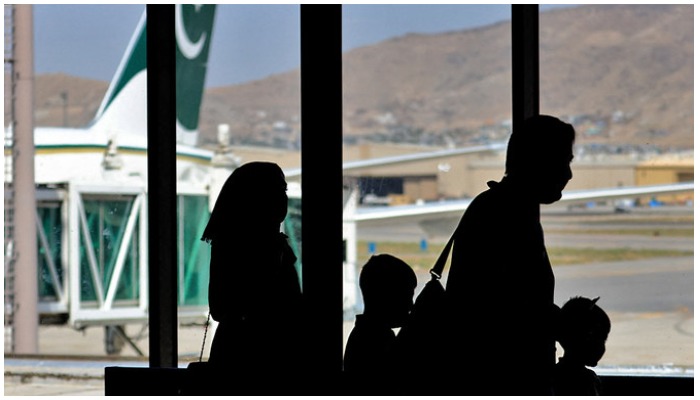Second Afghan refugee flight takes off for Spain from Pakistan
Around 160 people to arrive at the Torrejon de Ardoz military airbase outside Madrid via the second flight
October 12, 2021

- Around 160 people to arrive at the Torrejon de Ardoz military airbase outside Madrid via the second flight.
- 84 Afghans arrive on the first plane to Spain from Pakistan on Monday.
- Madrid evacuated over 2,000 people who had worked for Spain and their families, during the western withdrawal.
MADRID: Spain was expecting the arrival of the second flight of Afghan refugees from Pakistan, a government source said Tuesday, following the first flight for people who worked for Madrid in the war-torn country.
Tuesday’s arrival with around 160 people was scheduled for around 7:00 pm (1700 GMT) at the Torrejon de Ardoz military airbase outside Madrid, government sources said on condition of anonymity.
On Monday, 84 people had arrived on the first plane, the sources added.
Read more: Spain shifting Afghan employees via Pakistan
Spanish evacuations have been weeks in the making, with Foreign Minister Jose Manuel Albares visiting Pakistan and Qatar in early September to lay the groundwork.
Madrid evacuated more than 2,000 people, most of them were Afghans who had worked for Spain and their families, during the western withdrawal as the Taliban seized power in Kabul in August.
But the flights had to stop once the last American troops, who had been protecting the Kabul airport, left.
The European Union’s top diplomat, Josep Borrell, on Friday urged the bloc’s member states to host a "minimum" of between 10,000 and 20,000 more Afghan refugees.
"To welcome them, we have to evacuate them, and we’re getting down to it, but it’s not easy," he said in Madrid.
The EU has said a demand by the UN High Commissioner for Refugees to take in 42,500 Afghan refugees over five years can be achieved — although any decision lies with member states.









